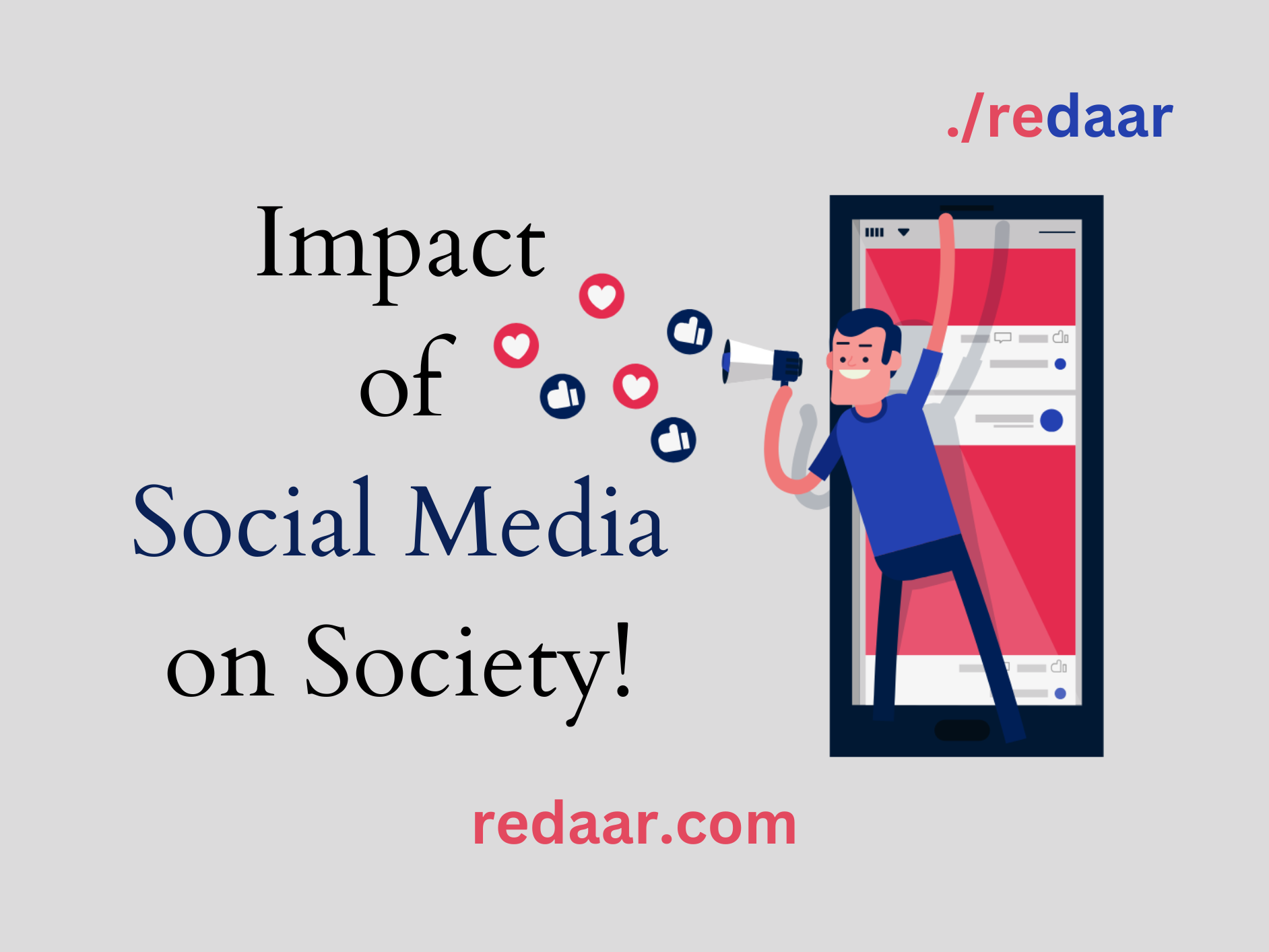Social media platforms have become revolutionary technologies that pervade every facet of our life in the wide digital age. The way we connect, communicate, and consume information has been changed by websites like Facebook, Twitter, Instagram, and numerous more.
Social media is widely dominated by a younger age group. There are also people of older age but young people dominate the networks. 92% of teens report going online daily — including 24% who say they go online “almost constantly,” This domination of teens has brought many or almost all brands on social media. Now, brands collaborate with teens for different products and try to establish their brand.
Social media has a significant and varied impact on society. It has changed the way we interact, express ourselves, and view the world. Social media has evolved into a force for social change by promoting connectivity, magnifying action, and altering communication styles. But its influence also poses problems including the dissemination of false information, the deterioration of privacy, and the impact on mental health.
This article examines the complex effects of social media on society, examining both the advantages and disadvantages of this digital revolution.
Enhancing Connectivity and Global Awareness
One of the most significant contributions of social media is its ability to connect people across distances and cultures. It has brought together long-lost friends, reunited families, and facilitated communication between individuals separated by geographical boundaries. Social media platforms have become virtual town squares where ideas, news, and information are shared, fostering a sense of global interconnectedness.
Giving Voice to Social Movements
Social media has become a significant change agent. These platforms are used by activists and grassroots groups to organize, raise awareness, and garner support. Social media has been crucial in connecting voices and bringing attention to social injustices, from the Arab Spring to the Black Lives Matter campaign. It gives voice to underrepresented groups, encourages conversation, and promotes social change.
Not to forget that, this power is also misused in spreading fake messages about some genuine campaigns, which proves to be fatal for society.
Seamless Communication
Social media has completely changed the way we engage and communicate with one another. Real-time dialogues and instantaneous sharing of thoughts, ideas, and emotions are now possible despite distance and temporal differences. This change in communication dynamics has prompted worries about the demise of face-to-face contact as well as the possibility of misunderstandings or miscommunications in the absence of non-verbal indicators.
Amplifying the News Landscape
Traditional media outlets have been disrupted by social media, enabling people to work as citizen journalists. Anyone with an internet connection can now exchange information and opinions, democratizing the news-dissemination process. While this offers chances for other viewpoints to be heard, it also prompts worries about the proliferation of false information and the degrading of journalistic standards.
Shaping up Consumer Behaviour
Social media platforms have evolved into online stores that influence consumer behavior and set trends. Influencers have a significant impact on how the public feels and how people make decisions about what to buy. The sale of influence, however, raises moral questions about the promotion of inflated beauty standards and the fuzziness of the distinction between sponsored material and paid advertisements.
Affecting the Mental Health
Social media’s widespread use has substantial effects on mental health. It can cause emotions of inadequacy, anxiety, and melancholy to be constantly exposed to meticulously crafted online personas. It can be quite stressful to live up to the popularity and perfection expectations of society. To protect their mental health, people must strike a balance between participating in online activities and fostering in-person relationships.
Privacy and Data Security Concerns
Social media services’ digitalization of user data poses significant privacy and data security concerns. The gathering and use of personal information for targeted advertising as well as the possibility of data breaches highlight the need for strict privacy laws and user education.
Social media almost knows everything about each individual. This can be severely misused sometimes, like for elections or mass movements.
In order to successfully navigate society’s ever-changing digital environment, it is critical to strike a balance between embracing social media’s advantages and minimizing any potential drawbacks.
In the end, it is up to people, platforms, and society as a whole to aggressively address social media’s negative aspects while harnessing its power for the common good. We can only properly take advantage of social media’s transformational potential in order to create a more connected and inclusive future by raising everyone’s awareness, promoting digital literacy, and weighing ethical issues.
We hope that our audience will use social media with respect to people’s privacy. That was the sole motive of this article, to make people aware of social media’s negative as well as positive aspects. Keep following us for such insightful posts.

